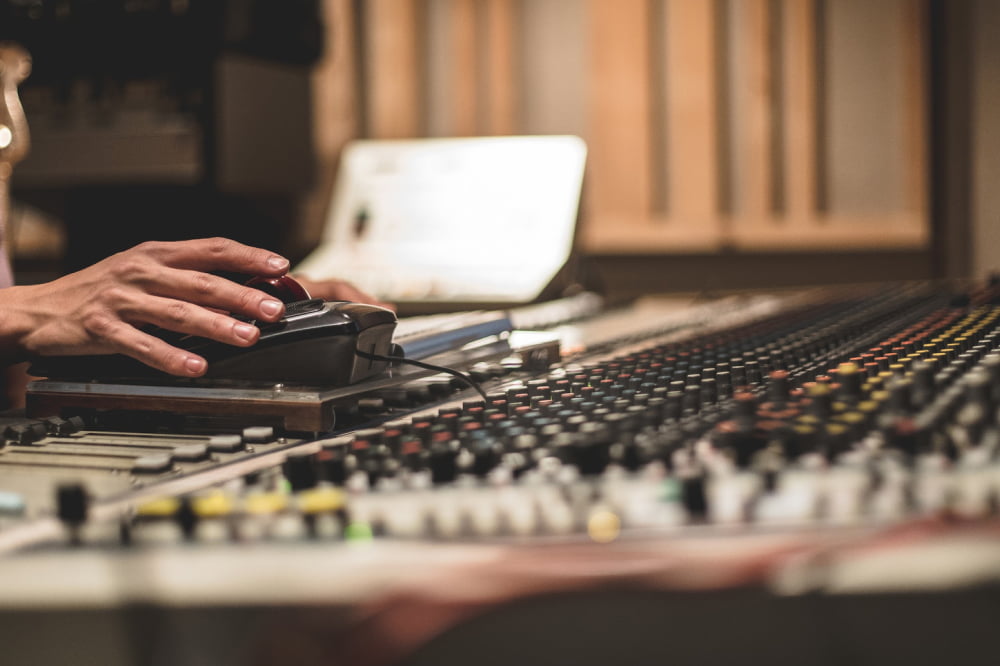
Music and sound recording – Equipment, jobs, and apps
Music is a universal language that transcends boundaries and links people from different cultures and generations. This valued art form has found its footing with the invention of sound recording, which allowed music to reach even the most remote corners of the world. Sound recording is a key part of music production. Today, multiple tools, platforms, and technologies make the process of recording easier, allowing even beginners to professionally make and produce music.
Music and sound recording equipment
One can record, edit, and create high-quality audio content using the following types of equipment:
Microphones: One can find different kinds of microphones (like condenser, dynamic, and ribbon microphones) to convert sound into electrical signals.
Consoles: While recording and mixing songs or sounds, engineers can balance and shape various audio aspects using mixing consoles.
Digital audio workstation (DAW): This is a comprehensive music and sound recording software program that can help one record, edit, and mix audio.
Signal processors: These tools are used for enhancing and modifying sound. Examples include equalizers, compressors, and reverb units.
Studio monitors: These are loudspeakers that help in accurate audio reproduction, making it easy for professionals to listen to tiny details during the recording and mixing processes.
Acoustic treatment: Diffusers, absorbers, and soundproofing materials help regulate room acoustics and reduce undesired reflections.
In addition to key equipment, one can choose from the following types of music and sound recording studio set-ups:
– Home studios, i.e., low-cost setups that one can create at home using available recording gear and instruments
– Project studios or intermediate-level workspaces meant for small and freelance projects
– Commercial studios, that is, professional recording studios, commonly rented for important projects and major label recordings.
Sound recording jobs
Pursuing a career in music and sound recording is ideal for those enthusiastic about music, technology, and creative expression. Here are some popular sound recording jobs one can find:
Audio engineers: They are responsible for recording, mixing, and mastering audio files. They also help with post-production editing and live broadcasting of audio-based content.
Music producers: Producers direct artists to make the desired music while supervising the recording process.
Sound engineers: Sound engineers produce and control audio elements to improve storytelling and enhance the audiovisual experience.
Foley artists: Foley artists create sound effects that mimic the actions on screen using commonplace objects and tools.
Recording studio managers: These managers are in charge of running a recording studio.
Acoustic consultants: They are technical experts in sound and vibration, offering help with designing spaces like concert halls, recording studios, and home theaters.
Audio software developer: Audio software developers create computer programs used for sound recording, mixing, and editing.
Music archivists: These professionals organize and preserve sound recordings and old musical manuscripts.
Popular apps
Today, music and sound recording apps make it easy for beginners and independent musicians to record, edit, and create audio-based content. GarageBand, Ableton Live, FL Studio, Pro Tools, Logic Pro, Cubase, Studio One, and Reaper are some of the popular applications.
Sound reproduction devices
Music that has been recorded and edited is usually reproduced using the following devices listed chronologically:
– The gramophone was the first instrument used for recording and playback.
– Cassette tapes, developed in the mid-20th century, offered portability and enabled users to make mixtapes and playlists.
– Over time, compact discs or CDs replaced vinyl records and cassettes, eradicating analog defects.
– Streaming services are popular today, offering on-demand access to vast music collections




